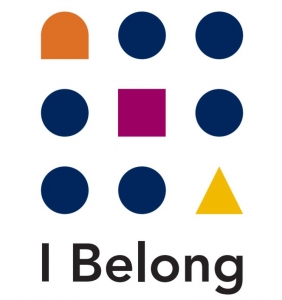Engaging students online – 12 ideas to make online learning environment more inclusive
While preparing for the new academic year, you might be looking for inspiring practices to make your learning environments more inclusive and supportive of student engagement. #IBelong team-member, Professor Liz Thomas from Edge Hill University compiled the list with 12 such ideas, that you might find useful. Initially the list was compiled with the intention to support commuter students during and after the Covid-19 pandemic, but these practices and tips are relevant and applicable to any (online) learning environment.
Feel free to add more in the comment section!
- Use group and one-to-one activities to introduce students to each other and to staff, and to encourage engagement. For example, this can be done via online tutor group meetings; we found sharing our own personal stories of overcoming challenges to be successful, and student mentors doing the same, helped new students to feel reassured about stepping into a different learning environment. We also used an activity where students shared anonymously ‘I want you to know this about me…’ and ‘You can support me to be successful by…’; this helped prompt conversations.
- Create safe spaces, with ground rules which enable people to participate, and communicate your commitment to diversity and inclusion. We shared some ground rules suggested by student volunteers and invited participants to amend or add to them.
- Promote the use of social media to allow student to keep in touch with each other beyond the formal institutional channels. Students will use social media they feel comfortable with, and this will encourage the informal conversations that are difficult to have through the formal online learning environment.
- Promote active learning through a mixture of synchronous and asynchronous online activities, offering students flexibility in how they engage. Videos and slide decks, audio recordings and documents can be used to transmit information; online fora, blogs and real-time sessions can promote discussion and collaboration. Group activities can be built into the teaching and independent learning. Make sure there are asynchronous options available.
- Review the curriculum and look for ways to diversify and enable students to shape the contents or focus, embed skills. Good practice in inclusive curricular need to be built into the online curriculum. Simple steps include reviewing the reading list, including more diverse examples, case studies and problems, inviting external speakers and finding opportunities for student-led contributions relating to their own interests (see Thomas 2015 for some examples).
- Provide diverse and flexible assessments to meet learning outcomes. Traditional modes of assessment have been disrupted, so continue to think creatively about how you assess students. Use a range of methods across the course, and consider flexibility in how students demonstrate learning outcomes.
- Use feed-forward and feedback to promoting learning and success. Many students find assessment challenging because they are unsure what is required and don’t know the unwritten rules. Unpacking assignment briefs (Cureton et al 2017) is a simple way to ensure all students understand what is required – get students to review and discuss the assignment brief in a taught session, then post questions anonymously. Teaching staff can they provide clarification of the issues raised on the module forum for all students.
- Careful use of language and terminology. Provide explicit guidance in relation to academic and technical terms; avoid colloquial expressions, jargon and cultural metaphors and humour. Encourage your students to let you know if they don’t understand anything you say or write; you could give an example of when you got it wrong.
- Organise one-to-one meetings, which allow students to share challenges. Less time on campus reduces the opportunities for informal interaction, so timetable sessions and other alternatives. Primary Education at Edge Hill have an initiative called ‘Just ask me if I’m OK’ (based on student feedback and an initiative developed by St Mary’s University as part of the What works? Student retention and success change programme). Each student is emailed personally once a month by their tutor and asked if they’re OK. Students just have to send by a numerical score 1-9, and those responding with 5 or under are followed up. It gives a quick way to make contact with students and check up on them.
- Have awareness, sensitivity and non-pathologizing view of challenges and offer non-judgemental extensions. Often students need to justify why they should be allowed an extension, but for all of the reasons identified above commuter students may experience particular challenges.
- Additional support services integrated into the curriculum and available 24/7, including pastoral support, academic development, financial support and IT support. The online learning environment throws up new challenges, and fewer opportunities for informal support from peers and others. Families often have very little appreciation of the challenges and issues students experience. Look at ways that you can integrate support opportunities in into the curriculum.
- Use this opportunity to review and become more inclusive. Covid-19 presents many challenges to the delivery of higher education, but it may also provide opportunities to create a more inclusive learning environment.
—–
About the author: Professor Liz Thomas has researched higher education for 20 years, specialising in widening participation, student retention and success, learning and teaching, and institutional approaches to improve student experiences and outcomes.





Leave a Reply
Want to join the discussion?Feel free to contribute!